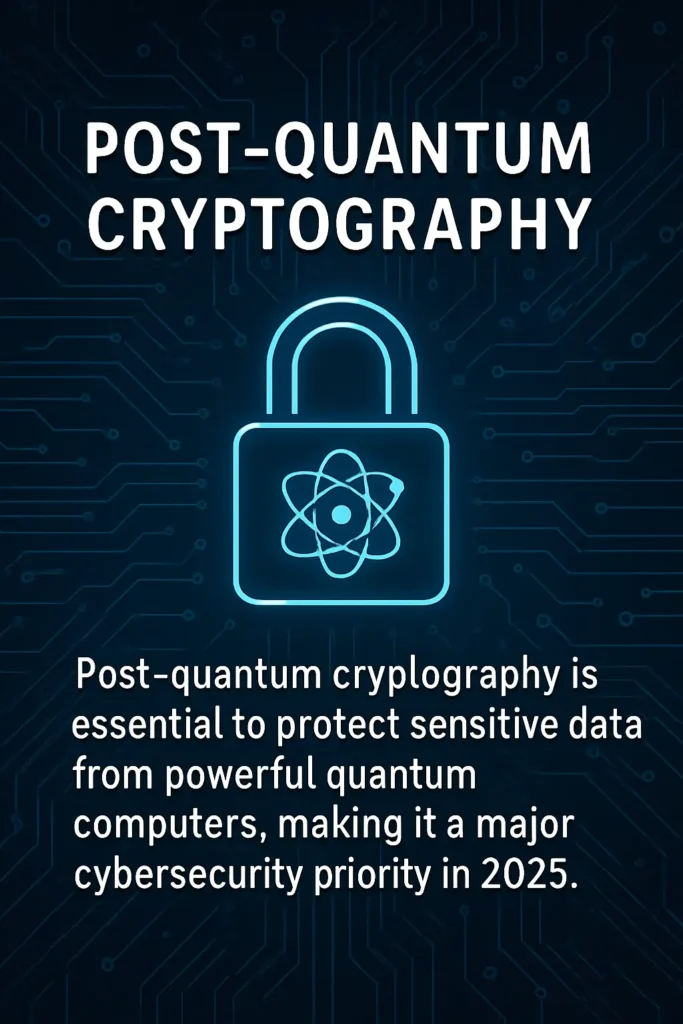🧠 Understanding the Quantum Threat
Quantum computing is advancing rapidly, with tech giants like IBM, Google, and Microsoft making significant strides. These powerful machines promise to solve complex problems beyond the capabilities of classical computers. However, they also pose a serious threat to current encryption methods, potentially rendering them obsolete .
🔐 What Is Post-Quantum Cryptography?
Post-quantum cryptography (PQC) refers to cryptographic algorithms designed to be secure against the capabilities of quantum computers. Unlike traditional encryption, PQC aims to protect data from being decrypted by quantum attacks, ensuring long-term security .
🚀 Why 2025 Is a Pivotal Year
In 2025, the urgency to adopt PQC is growing. Governments and organizations worldwide are investing in developing and standardizing quantum-resistant algorithms. The U.S. National Institute of Standards and Technology (NIST) is leading efforts to establish PQC standards, emphasizing the need for immediate action .
🛡️ Implementing Post-Quantum Security
Transitioning to PQC involves:
- Assessment: Identifying systems vulnerable to quantum attacks.
- Integration: Incorporating PQC algorithms into existing infrastructure.
- Testing: Ensuring compatibility and performance of new cryptographic methods.
Organizations are encouraged to begin this process promptly to safeguard sensitive information.
🔮 Looking Ahead
As quantum computing continues to evolve, the importance of post-quantum cryptography cannot be overstated. Proactive measures taken today will determine the security landscape of tomorrow.
Stay informed on the latest in cybersecurity and quantum advancements by following our blog.


